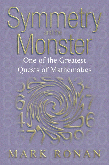Boris Godunov, Royal Opera, January 2026
January 31, 2026This second revival of the Royal Opera’s production from 2016 was a triumph for Bryn Terfel who gave a beautifully nuanced performance in the title role. The opera features a densely packed sequence of events in a formative period of modern Russia at what in England would be the Tudor period. See my review in …
HMS Pinafore, English National Opera, Dec 2025
December 5, 2025This revival of Cal McCrystal’s 2021 production clearly entertained the audience who clapped along with the music towards the end. The conductor, along with a cast held together well by Captain Corcoran, carried off a strong performance despite over-acting in the role of Dick Deadeye — see my review in The Article.
The Makropulos Case, Royal Opera, Nov 2025
November 7, 2025This wonderful opera by Janáček, based on a play by the great Czech writer Karel Čapek, involves a complex legal case that has been running for over a hundred years. Into this confusion steps Elena Makropulos, who exhibits unusual knowledge of the case. Born in the late sixteenth century she wants to find the secret …
Dead Man Walking, English National Opera, Oct 2025
November 3, 2025A man on death row in a Louisiana State penitentiary strikes up a written correspondence with a nun, and asks her to come and see him. She does, but not to plead his innocence, rather to plead with him to admit his crimes and seek solace in his dying hours. This superb opera offers anger, …
Albert Herring, English National Opera, Oct 2025
October 14, 2025Once again the English National Opera defy the Arts Council which has stripped them of funding. This semi-staged version of Britten’s Albert Herring was a musical triumph under the baton of Daniel Cohen, and after another performance in London it moves to Salford, which is partly what the Arts Council wants. Great musicality — see …
Cinderella, English National Opera, Sept 2025
September 29, 2025This engaging and eclectic new production by Julia Burbach gave us Rossini’s Cenerentola in a form where the pompous father seemed relatively normal. He hides huge insecurity behind a pretentious exterior, but Burbach managed to avoid making him a complete buffoon — see my review in The Article.
See all Theatre Reviews




